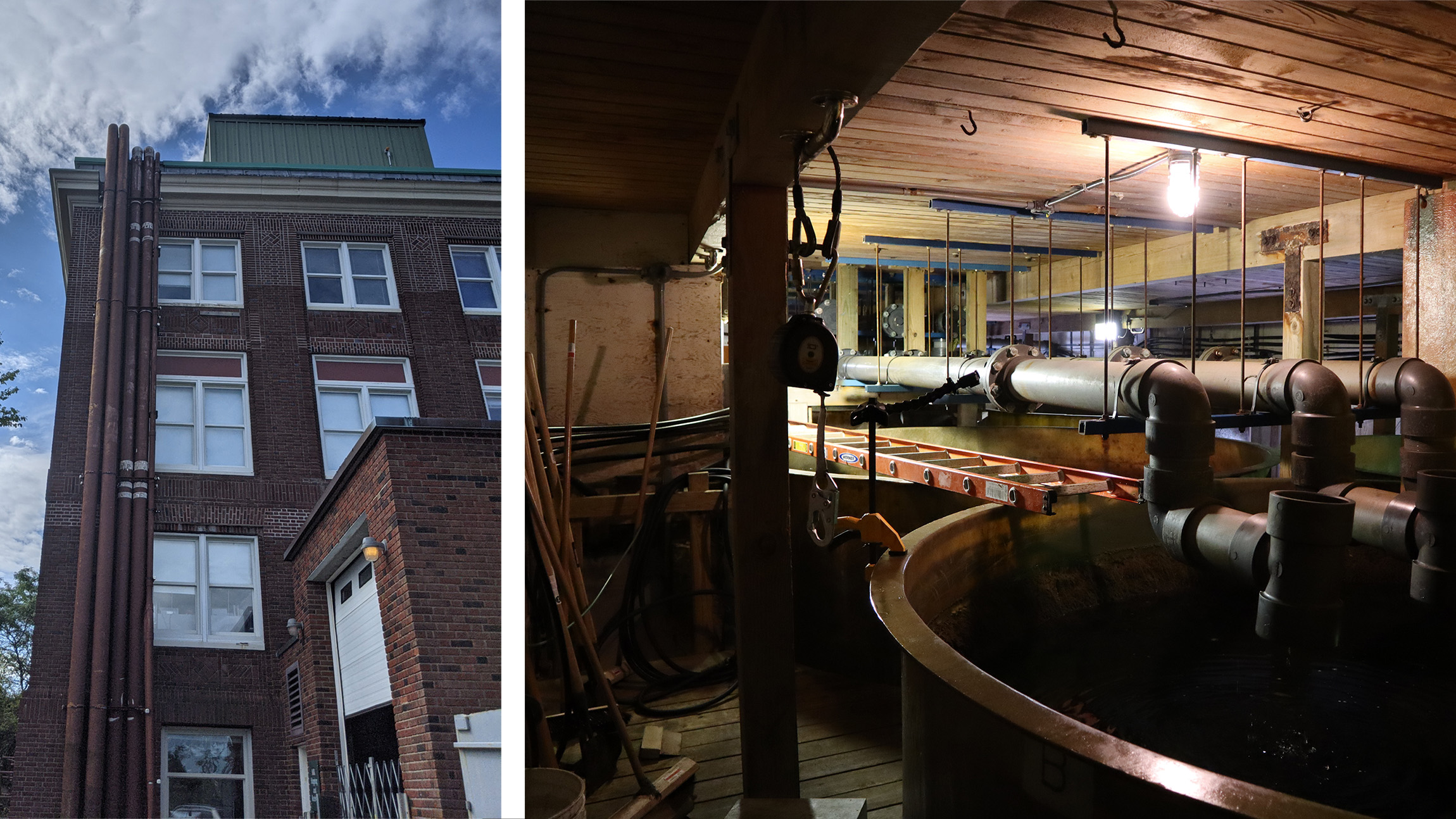Water, Water Everywhere at the MBL

How the MBL Facilities Department keeps seawater flowing on the MBL campus
Nestled on the roof of the MBL’s iconic Lillie Laboratory are nine 5,000-gallon tanks full of seawater. The water, which adds up to a whopping 375,300 pounds, is pumped from Great Harbor, through pipes below Water Street, and up three stories along the outside of the Lillie Building.
 Seawater pipes on the side of the Lillie Building (left). The inside of the tank room on the top of the Lillie roof (right). Credit: Emily Greenhalgh
Seawater pipes on the side of the Lillie Building (left). The inside of the tank room on the top of the Lillie roof (right). Credit: Emily GreenhalghThe tanks form the heart of the MBL seawater “circulatory system” and the MBL Facilities Department is responsible for keeping that heart pumping. This system includes about three miles of pipes that span the MBL campus, gravity feeding fresh seawater to labs in the Lillie, Loeb, and Rowe Laboratories and the Marine Resources Center.
On a typical summer day, 550 gallons of water per minute is pumped from Great Harbor—around 792,000 gallons of seawater a day! The pipe, which sits about 11 feet under the water, has a grate to ensure that larger organisms don’t swim into the pipe and clog it, but it can’t filter out larvae.
MBL Seawater Technician John Carr said they have found oysters, scallops, sea spiders, and various fish that bypassed the Great Harbor grate as larvae and grew to a large size due to the lack of predation in the pipes.
“Probably one of the coolest things I have found were baby squids that had to have entered the tanks as hatchlings and then developed in the tanks,” said Carr. “It is amazing what survives going through the pumps and gets delivered into the tanks!”